Thailand: Shifting Ground Between the US and China
Benjamin Zawacki
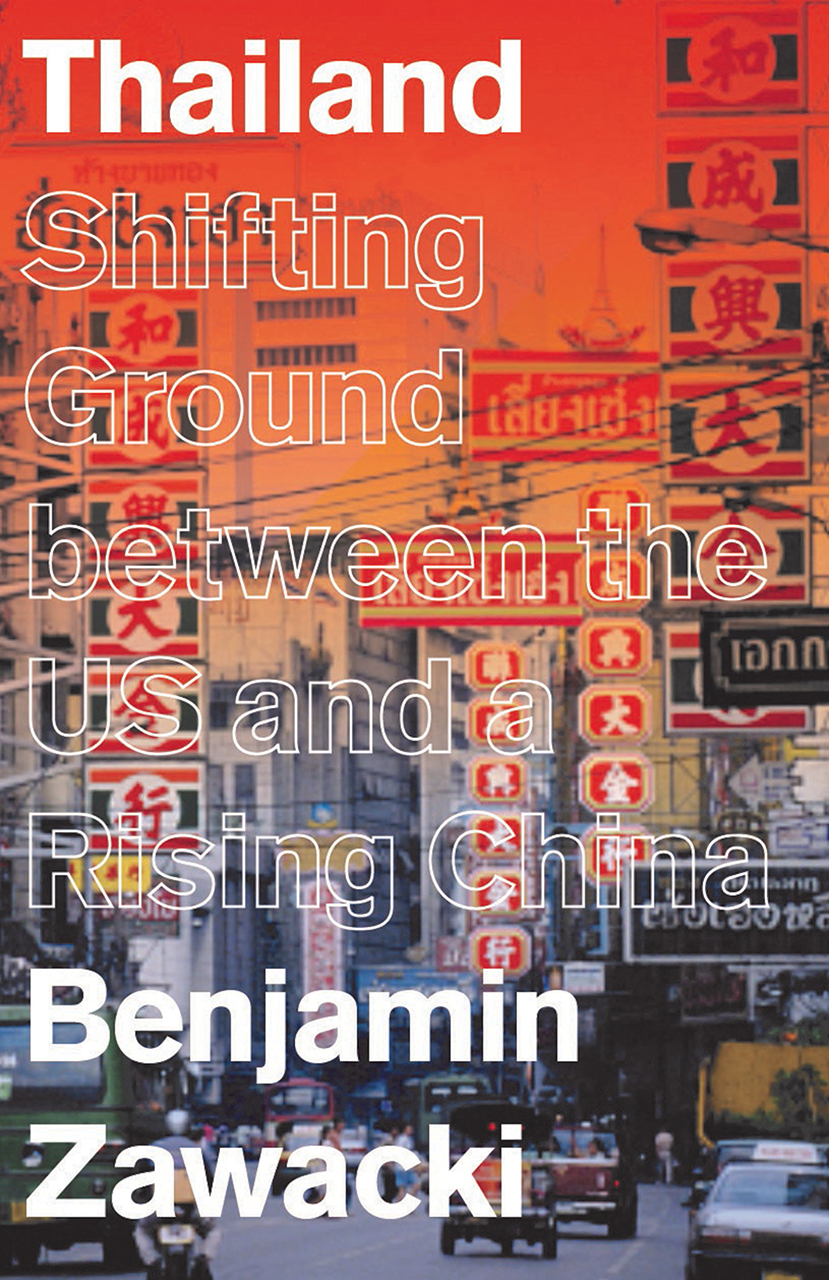 Thailand has long been a strategic ally of the United States, first as a Cold War anti-communist bulwark in the region and then later as a partner in the “War on Terror”. Yet, as China’s economic power has grown, so has its influence in Thailand, including through support for key infrastructure projects, such as the revived plans to construct a US$28 billion, 135-kilometre canal across southern Thailand, linking the Indian and Pacific oceans. In this comprehensive study of Thailand’s foreign policy from 1945 to 2014, drawn from interviews with elite figures including the deposed prime minister Thaksin Shinawatra, Benjamin Zawacki provides a window into a changing region that tells us much about China’s Belt and Road Initiative and its geopolitical implications.
Thailand has long been a strategic ally of the United States, first as a Cold War anti-communist bulwark in the region and then later as a partner in the “War on Terror”. Yet, as China’s economic power has grown, so has its influence in Thailand, including through support for key infrastructure projects, such as the revived plans to construct a US$28 billion, 135-kilometre canal across southern Thailand, linking the Indian and Pacific oceans. In this comprehensive study of Thailand’s foreign policy from 1945 to 2014, drawn from interviews with elite figures including the deposed prime minister Thaksin Shinawatra, Benjamin Zawacki provides a window into a changing region that tells us much about China’s Belt and Road Initiative and its geopolitical implications.
The Dragon’s Gift
Deborah Brautigam
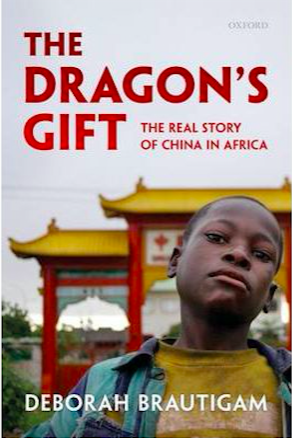 As China held this year’s Forum on China-Africa Cooperation in September, it is a good time to read (or re-read) Deborah Brautigam’s ground-breaking work on China’s involvement in Africa. From humanitarian aid to concessional loans, the book illuminates China’s much debated but little known engagement with the continent, from as early as the Mao era. What makes this book stand out though is the author’s use of empirical data painstakingly collected from original Chinese and African sources. Brautigam debunks popular but biased headlines about China’s role in Africa, from its “resource-grabbing” to its propensity to work with dictators. Since the book was published over ten years ago, the author has continued her work through the China Africa Research Initiative and the China in Africa blog, which are also highly recommended.
As China held this year’s Forum on China-Africa Cooperation in September, it is a good time to read (or re-read) Deborah Brautigam’s ground-breaking work on China’s involvement in Africa. From humanitarian aid to concessional loans, the book illuminates China’s much debated but little known engagement with the continent, from as early as the Mao era. What makes this book stand out though is the author’s use of empirical data painstakingly collected from original Chinese and African sources. Brautigam debunks popular but biased headlines about China’s role in Africa, from its “resource-grabbing” to its propensity to work with dictators. Since the book was published over ten years ago, the author has continued her work through the China Africa Research Initiative and the China in Africa blog, which are also highly recommended.
Drawdown
Edited by Paul Hawken
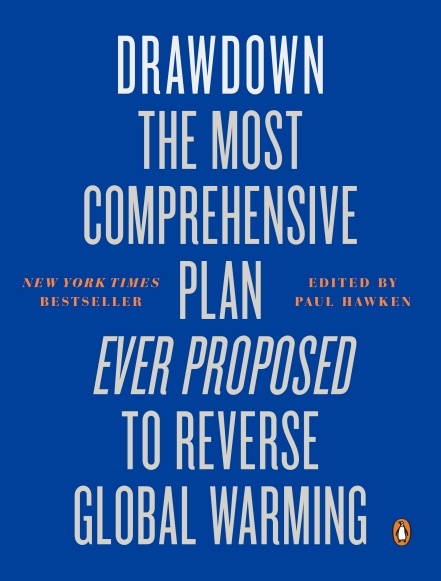 Three years ago, a group of a hundred scientists from all walks of life came together for a grand experiment: finding, modelling and ranking the most effective solutions to reverse climate change. The result of their work is Drawdown, a beautifully edited and easy-to-understand catalogue of the 80 most effective solutions that currently exist and the science behind them. From solar rooftops and silvopasture (combining trees and pasture) to less obvious ones like educating girls, the book presents the most comprehensive plan to tackle the largest challenge of our times.
Three years ago, a group of a hundred scientists from all walks of life came together for a grand experiment: finding, modelling and ranking the most effective solutions to reverse climate change. The result of their work is Drawdown, a beautifully edited and easy-to-understand catalogue of the 80 most effective solutions that currently exist and the science behind them. From solar rooftops and silvopasture (combining trees and pasture) to less obvious ones like educating girls, the book presents the most comprehensive plan to tackle the largest challenge of our times.
The Man with the Compound Eyes
 Wu Ming-Yi
Wu Ming-Yi
This work of science fiction is a tale about a slow-rolling ecological disaster. A Pacific Islander, Atile’i, is swept up in a tsunami freighted down by trash, and hurled onto the eastern coast of Taiwan island. As the tsunami creates a trash vortex threatening the island, Atile’i and Alice Shih, an academic, find ways to somehow bond and work towards saving the beauty of the island. With the launch of our new website chinadialogue ocean and the growing crisis consuming our ocean, this novel takes on new pertinence.
Ocean of Life: The Fate of Man and the Sea
Callum Roberts
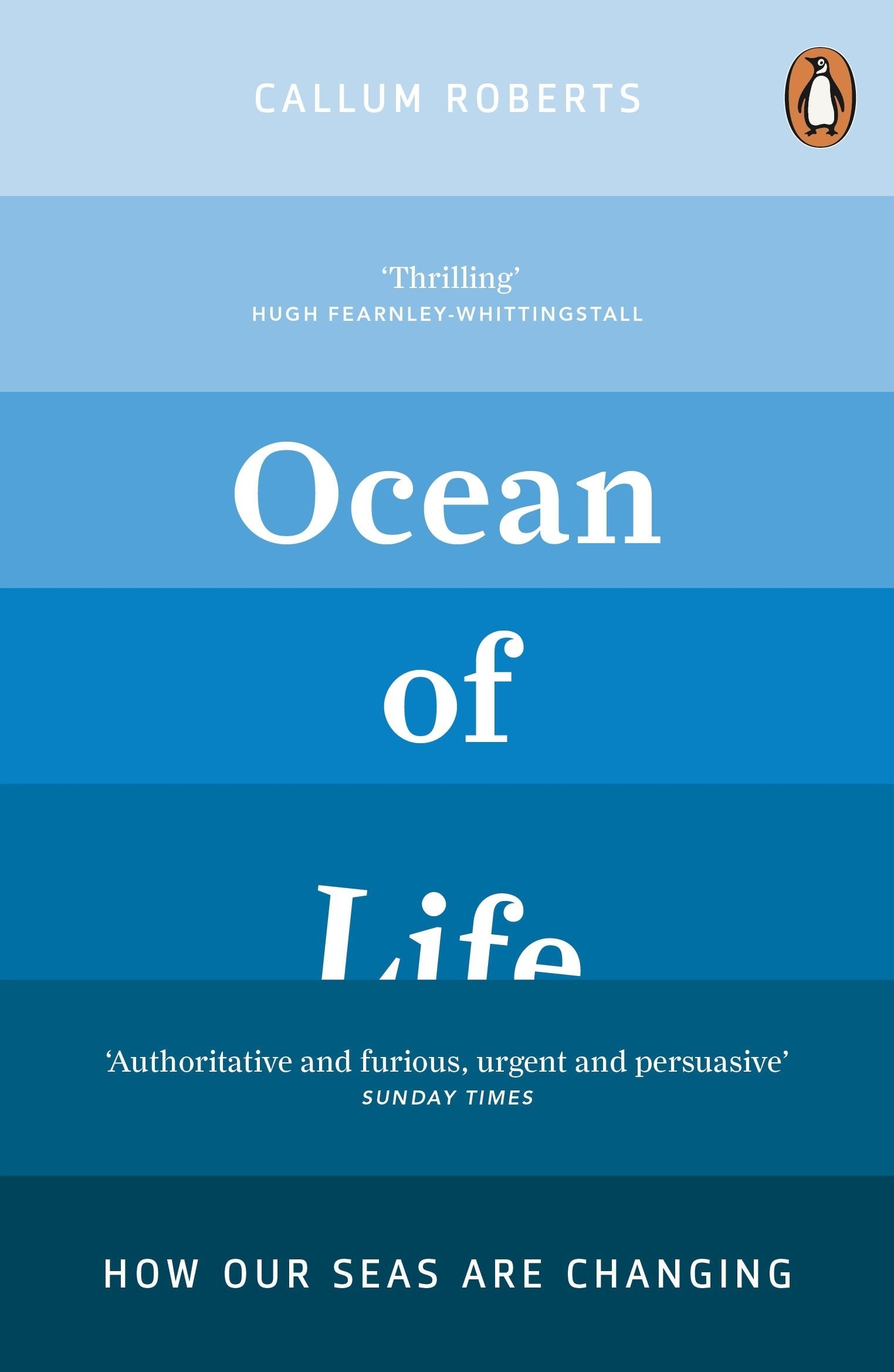 Callum Roberts is professor of marine conservation at the University of York and was consultant to the BBC Blue Planet series. This book provides a meticulous survey of the global state of the oceans – painting an overwhelming picture of destruction. In just a generation, many species of fish have been reduced by 99% and in some places 90% of coral reefs have been lost. Yet, no one seems to care. If you care and want to understand what’s happening read this book.
Callum Roberts is professor of marine conservation at the University of York and was consultant to the BBC Blue Planet series. This book provides a meticulous survey of the global state of the oceans – painting an overwhelming picture of destruction. In just a generation, many species of fish have been reduced by 99% and in some places 90% of coral reefs have been lost. Yet, no one seems to care. If you care and want to understand what’s happening read this book.
The Great Smog of India
Siddharth Singh
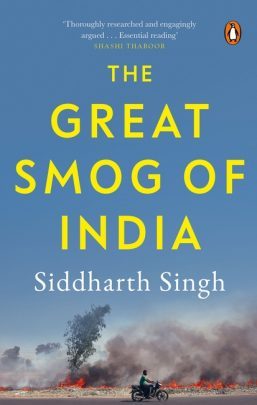 The pollution choking Delhi and much of northern India this year made China look like a green and pleasant land. Siddharth Singh’s new book gets to the core of the country’s catastrophic air quality, tying the challenge of air pollution to India’s developmental path, its transport, energy demand, the shape of its agricultural sector (and stubble burning that adds significantly to pollution) as well as to the political and administrative tangle that leaves the country unable to address the public health crisis.
The pollution choking Delhi and much of northern India this year made China look like a green and pleasant land. Siddharth Singh’s new book gets to the core of the country’s catastrophic air quality, tying the challenge of air pollution to India’s developmental path, its transport, energy demand, the shape of its agricultural sector (and stubble burning that adds significantly to pollution) as well as to the political and administrative tangle that leaves the country unable to address the public health crisis.
Singh calls for an overarching policy, as well as a body that can coordinate between the central and state governments, and that has the political heft to make changes. There are lessons India can learn from China’s experiences too.
China as a Polar Great Power
Anne-Marie Brady
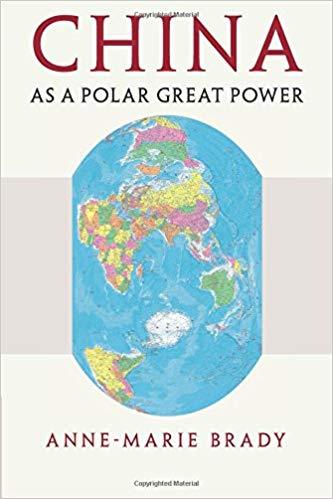 In this tour de force Anne Marie Brady unpicks China’s ambitions in the Arctic and Antarctic to reveal the geopolitical implications. China’s growing participation in these regions is a good prism through which to examine the country’s global rise. Based on wide-ranging Chinese sources, her research shows the complex drivers of China’s Arctic ambitions – from resource extraction, fishing, access to new shipping channels, global status and influence – as well its importance as a basis for climate science, space and nuclear programmes and military development.
In this tour de force Anne Marie Brady unpicks China’s ambitions in the Arctic and Antarctic to reveal the geopolitical implications. China’s growing participation in these regions is a good prism through which to examine the country’s global rise. Based on wide-ranging Chinese sources, her research shows the complex drivers of China’s Arctic ambitions – from resource extraction, fishing, access to new shipping channels, global status and influence – as well its importance as a basis for climate science, space and nuclear programmes and military development.
As climate change hastens ice melt, creating new economic opportunities in the polar regions, chinadialogue will be closely following the environmental impacts of China’s and other countries’ activities there over the next year.
Dawn of the Solar Age: An End to Global Warming and to Fear
Prem Shankar Jha
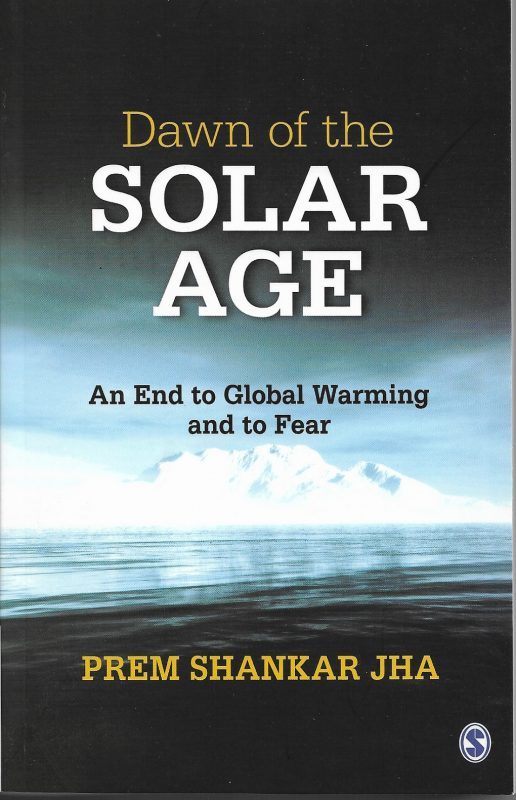 The IPCC’s latest warnings shattered any cosy illusion that we can continue living as we have done in the face of climate change. It has become clear that the world has to limit warming to 1.5 degrees Celsius to avoid catastrophic climate change. To achieve that, it must halve human CO2 emissions by 2030 and bring them down to zero by 2055.
The IPCC’s latest warnings shattered any cosy illusion that we can continue living as we have done in the face of climate change. It has become clear that the world has to limit warming to 1.5 degrees Celsius to avoid catastrophic climate change. To achieve that, it must halve human CO2 emissions by 2030 and bring them down to zero by 2055.
This is possible using existing technologies, Prem Shankar Jha argues persuasively in his new book, if the political will is there. He calls for the widespread deployment of concentrated solar thermal power (which can replace coal and gas), and use of methanol from biomass gasification, which can be combined with transport fuels or petrochemicals.
These two technologies can make the low-carbon transition from coal to low-carbon energy painless. A modest tax on carbon, say – specifically coal, oil and natural gas – is all that the world will need to finance and speed up the transition.







